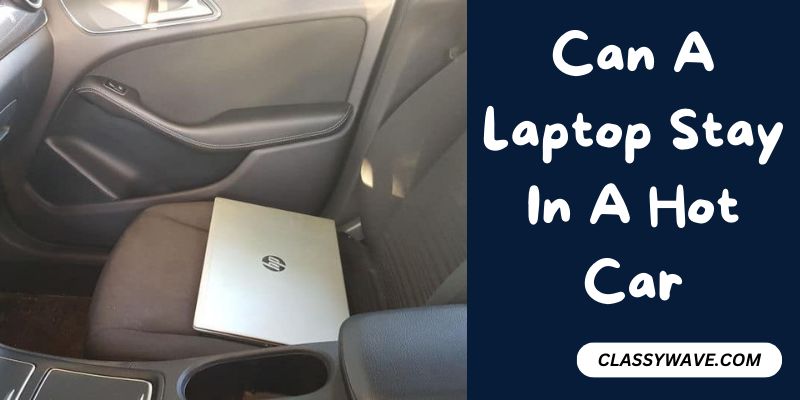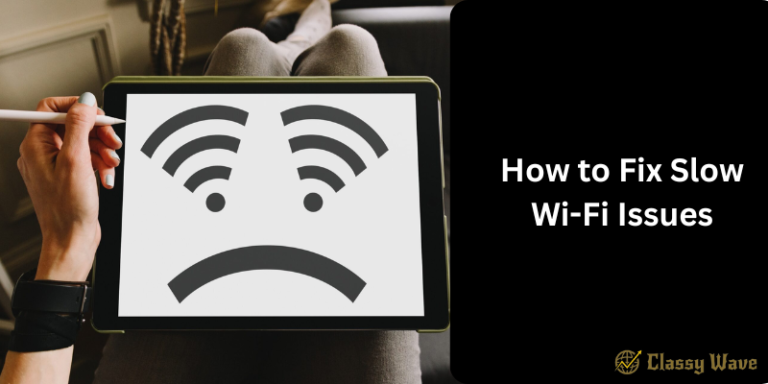Can A Laptop Stay In A Hot Car – Tips and Risks Explained
In a world where our lives revolve around technology, the fate of our gadgets, especially laptops, becomes a matter of concern. Picture this scenario: you leave your laptop in the car on a scorching summer day. Is it safe? Can a laptop withstand the intense heat inside a parked car? Let’s delve into the intricacies of this question and unravel the truth.
Understanding Laptop Heat Tolerance
Laptops, like any electronic device, have a specific temperature range within which they function optimally. Operating outside this range can have dire consequences, affecting both performance and longevity.
Optimal Temperature Range for Laptops
Manufacturers typically design laptops to perform efficiently in temperatures between 50 to 95 degrees Fahrenheit (10 to 35 degrees Celsius). This range ensures that internal components function seamlessly without overheating.
Consequences of Exceeding Heat Limits
When exposed to temperatures beyond the recommended range, laptops can experience performance issues, shortened battery life, and, in extreme cases, permanent damage to internal components. Understanding these consequences is crucial for responsible laptop ownership.
Effects of Hot Cars on Laptops
Now, let’s address the specific issue of leaving a laptop in a hot car, a scenario many of us encounter without fully grasping the potential repercussions.
Impact on Battery Life
The battery is particularly sensitive to heat. High temperatures accelerate chemical reactions within the battery, leading to a faster degradation of its capacity. As a result, your once-dependable laptop may struggle to hold a charge, requiring frequent recharging.
Potential Damage to Internal Components
Beyond the battery, prolonged exposure to extreme heat can harm the laptop’s internal components. The delicate circuitry and sensitive hardware may warp, leading to malfunctions or even permanent damage. This raises a red flag for laptop owners who regularly leave their devices in hot environments.
Preventive Measures
Understanding the risks prompts the need for proactive measures to shield your laptop from unnecessary heat stress.
Tips for Avoiding Laptop Exposure to Extreme Heat
Never leave your laptop in a parked car: Even for a short duration, the temperature inside a parked car can escalate rapidly, causing irreversible damage.
Use shades and reflective surfaces: When parking, opt for shaded areas or use reflective materials to reduce heat absorption.
Employ cooling accessories: Invest in external cooling pads or fans to dissipate heat during intensive usage.
Follow manufacturer guidelines: Adhere to the recommended storage conditions provided by your laptop’s manufacturer.
Recommended Storage Practices
Store in a cool, dry place: When not in use, keep your laptop in a cool and well-ventilated environment.
Power down when not needed: Shutting down your laptop instead of leaving it in sleep mode helps prevent unnecessary heat generation.
Cooling Solutions
Apart from preventive measures, there are active steps you can take to keep your laptop cool.
External Cooling Accessories
Consider using external cooling pads or fans designed to dissipate heat effectively. These accessories can be particularly beneficial during resource-intensive tasks such as gaming or video editing.
Built-in Laptop Cooling Mechanisms
Many modern laptops come equipped with built-in cooling mechanisms, including fans and heat sinks. Understanding how these systems work can help users make the most of their laptop’s cooling capabilities.
Real-Life Scenarios and Consequences
To drive home the importance of this issue, let’s explore real-life scenarios where laptops faced the heat, both figuratively and literally.
Stories of Laptops Damaged by Heat Exposure
Melting keyboards: Instances where extreme heat caused the laptop’s keyboard to warp and melt.
Data loss due to overheating: Horror stories of users losing valuable data as a result of prolonged exposure to high temperatures.
Costly Repairs and Data Loss
Repairing heat-related damage can be expensive, and in some cases, irreparable. The cost of data recovery services further emphasizes the need for preventative action.
Manufacturer Guidelines
Laptop manufacturers provide valuable insights into the ideal conditions for their devices.
Insights from Laptop Manufacturers
Temperature specifications: Manufacturers often specify the temperature limits within which their laptops should operate.
Warranty implications: Exceeding these limits may void the warranty, underlining the seriousness of adhering to guidelines.
Emergency Actions
If your laptop has already been exposed to heat, swift action can mitigate potential damage.
Steps to Take if Your Laptop has been Exposed to Heat
Power down immediately: Turn off your laptop to prevent further heat-related stress.
Allow cooling time: Let your laptop cool down in a well-ventilated area before attempting to use it again.
Quick Fixes to Mitigate Potential Damage
Check for visible damage: Inspect your laptop for any signs of warping, melting, or discoloration.
Backup data: Prioritize data backup to avoid loss in case of future malfunctions.
Comparative Analysis with Other Devices
To better understand the unique challenges laptops face in high temperatures, let’s compare them with other electronic devices.
How Laptops Differ from Other Electronics in Heat Tolerance
Laptops, being compact and densely packed with components, are more susceptible to heat than larger devices. Understanding this distinction is crucial for devising effective heat management strategies.
Common Misconceptions about Device Resilience
Dispelling misconceptions about a device’s ability to withstand heat is essential for responsible gadget usage.
Technological Advancements
Innovation plays a pivotal role in enhancing laptop resilience to heat.
Innovations in Heat-Resistant Laptop Materials
Advanced cooling systems: Manufacturers are integrating innovative cooling systems to regulate laptop temperature.
Heat-resistant materials: The development of materials with enhanced heat tolerance contributes to prolonged device lifespan.
Future Prospects for More Durable Laptops
As technology progresses, the future holds promising advancements in laptop durability and heat resistance.
User Habits and Responsibility
While technology continues to evolve, user habits play a significant role in ensuring the longevity of electronic devices.
Encouraging Responsible Laptop Usage
Education on heat sensitivity: Raise awareness about the impact of heat on laptops.
Personal responsibility: Users must take proactive steps to protect their devices.
The Role of Awareness in Preventing Heat-Related Damage
Understanding the risks empowers users to make informed decisions about laptop usage in various environments.
Myths and Facts
Let’s debunk common myths surrounding laptops and heat.
Dispelling Common Misconceptions about Laptops and Heat
Sleep mode protection: Contrary to popular belief, sleep mode does not provide sufficient protection against heat-related damage.
Extreme temperatures are tolerable: Laptops are not designed to withstand extreme temperatures for prolonged periods.
Providing Accurate Information to Users
Arming users with accurate information is vital for promoting responsible device usage.
Environmental Impact
The ecological consequences of laptop damage extend beyond personal inconvenience.
Exploring the Ecological Consequences of Laptop Damage
Electronic waste: Heat-damaged laptops contribute to the growing issue of electronic waste.
Sustainable practices: Adopting eco-friendly practices in electronics usage helps reduce environmental impact.
Sustainable Practices in Electronics Usage
Users can contribute to environmental conservation by adopting sustainable practices in the maintenance and disposal of electronic devices.
Community Tips and Experiences
Learn from the collective wisdom of online communities.
Crowdsourced Advice from Online Communities
Avoiding hot car scenarios: Community members share tips on how to avoid accidentally leaving laptops in hot cars.
Recovery stories: Users recount successful recovery attempts after laptop heat exposure.
Learning from Others’ Experiences with Laptop Heat Exposure
Harness the power of shared experiences to enhance your understanding of laptop care in various environments.
Conclusion
In conclusion, the question of whether a laptop can stay in a hot car is not a trivial matter. Understanding the potential consequences, preventive measures, and the role of technology and user responsibility is crucial for responsible laptop ownership. By dispelling myths, adopting sustainable practices, and learning from others’ experiences, users can safeguard their laptops and contribute to reducing electronic waste.
FAQs
Q: Can a laptop survive brief exposure to high temperatures?
A: Brief exposure may not cause immediate damage, but repeated instances can lead to long-term issues.
Q: Are all laptops equally sensitive to heat?
A: While sensitivity varies, all laptops have a temperature threshold that, when exceeded, can result in damage.
Q: Does using a cooling pad make a significant difference?
A: Yes, cooling pads can help dissipate heat and prevent potential damage during resource-intensive tasks.
Q: What should I do if my laptop shows signs of heat damage?
A: Power it down immediately, allow it to cool, and assess for visible damage. Consider professional evaluation if needed.
Q: How can I contribute to reducing electronic waste from damaged laptops?
A: Adopt sustainable practices, including proper disposal and recycling of old or damaged electronic devices.







